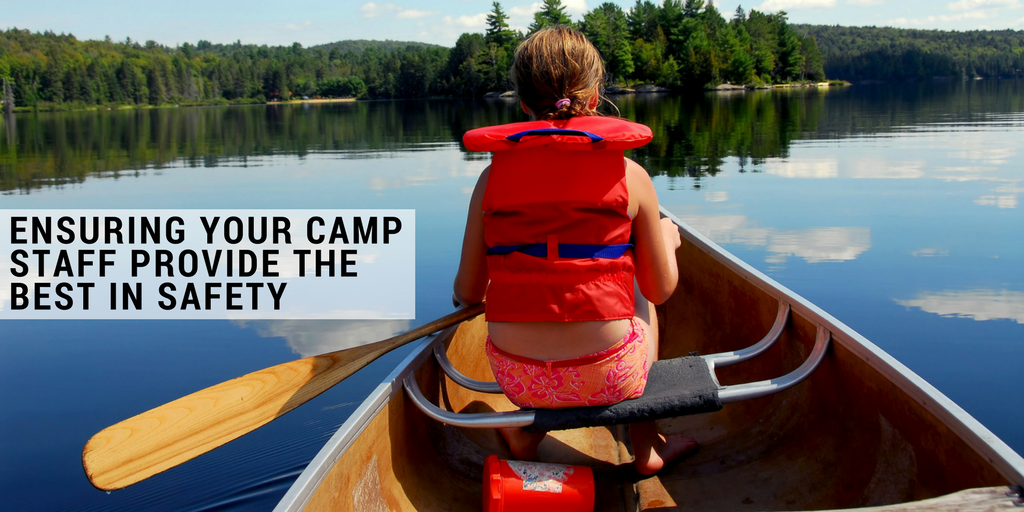When your camp staff ensure the best in safety for your spring and summer programs, they in turn provide parents with peace of mind that their children are being well looked after, and that their wellbeing is top of mind.
Use our 30 minute webinar, Demonstrating Your Commitment to Participant Safety, to expand and improve your health and safety plans, or build out an entirely new one!
Or if you’re looking for a quick summary of the webinar, here are the highlights of the most important points:
Be Prepared for Any Activity
- Identify safety requirements unique to each program and activity. For example, ensure you have access to health information during field trips, and that you bring the necessary gear, like a compass and simplified first aid kit, while hiking.
- Ensure that your staff is certified for each activity they are responsible for (e.g. USA archery certification program)
- Provide staff and participants with all the necessary safety equipment for each activity
Collect and Manage the Right Information
When families register for your programs be sure to collect critical information, including:
- Emergency contact information for each child
- Specifics on dietary requirements
- Allergy information and food sensitivities
- Special accommodations, so that camp staff have a more complete understanding of a child’s needs, and can provide necessary support throughout the program (hint: ePACT can help your organization collect this information)
Identify a Safety Point Person
- Appoint a staff member as your key safety member
- Help them become, and remain a subject matter expert
- Let other staff know who they are, so they can help build a culture of safety
Make or Review Your Emergency Plan
- Have emergency and medical information for each participant, so you can immediately provide support when needed. Make sure it’s easily accessible too.
- Have a way to quickly communicate – phone trees take far too long in the event of a large scale emergency!
- Test and refine before every program session. We recommend practicing and training in a few different scenarios. For example, practice an injury such as a broken leg, as well as a full evacuation of the community center because of a flood.
Conduct Regular Safety Audits
- Review any incident reports from last year to help decrease the possibility of the same incidents this year
- Meet with your staff to get feedback on any safety improvements they think would be valuable
- Get feedback from campers and their families to see if they have any particular safety concerns
Bonus: Build On Top of Basic First Aid
While general First-Aid skills can potentially save a life, it’s also important for camp staff to understand how to respond to various allergies or specific medication requirements that are outside the scope of general training. By ensuring that your camp staff know how to use an EpiPen or other auto-injector, or how to administer medication for a specific health condition, can reduce the stress of the situation and provide immediate medical care until the child is taken to a hospital or health center.
Terms and Conditions
All content provided on this blog is for informational purposes only. The owner of this blog makes no representations as to the accuracy or completeness of any information on this site or found by following any link on this site. The owner will not be liable for any errors or omissions in this information nor for the availability of this information. The owner will not be liable for any losses, injuries, or damages from the display or use of this information. This policy is subject to change at anytime.

